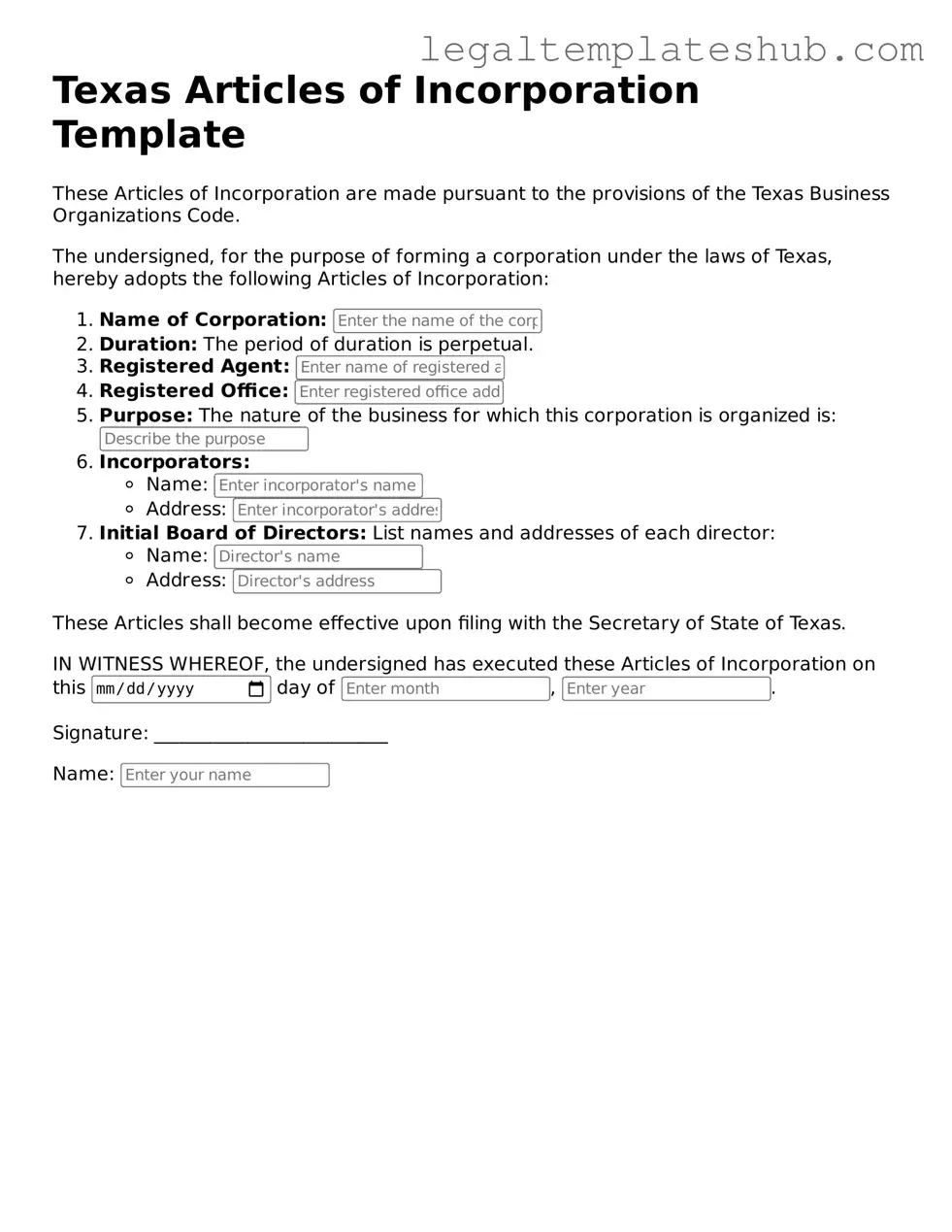Printable Articles of Incorporation Document for Texas
The Texas Articles of Incorporation form is a crucial document that establishes a corporation in the state of Texas. This form outlines essential details about your business, including its name, purpose, and structure. Completing this form accurately is vital for ensuring your corporation is legally recognized, so take action now by filling out the form below.
Access Editor
